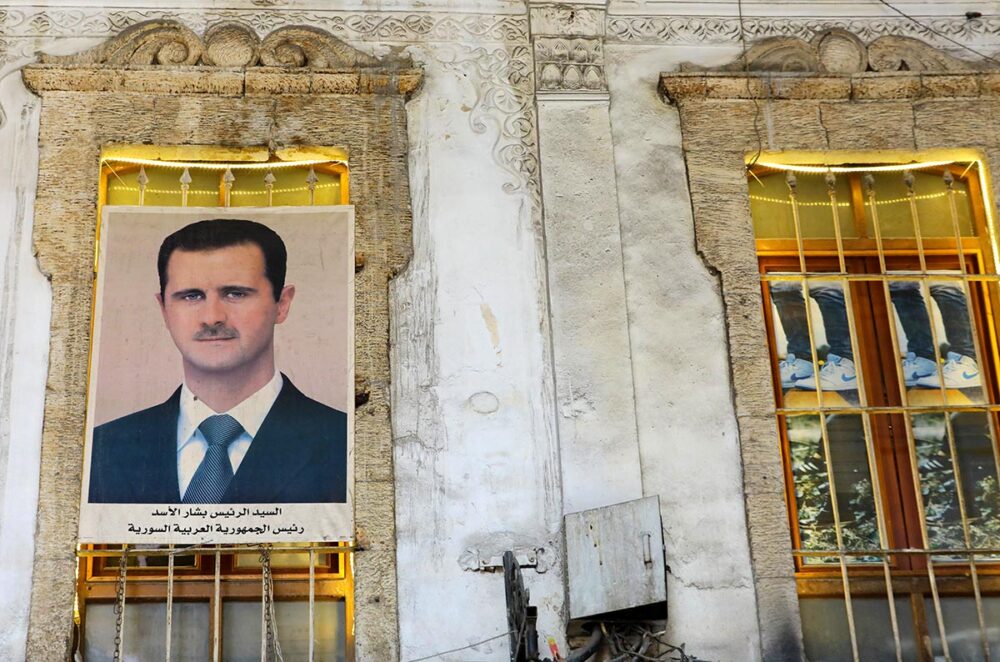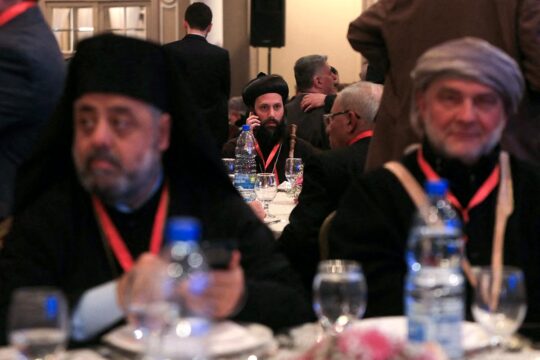It has been one year since the Netherlands and Canada initiated proceedings against the Syrian Arab Republic, and more than six months since the International Court of Justice (ICJ) in The Hague has ordered “provisional measures”, but the Syrian regime continues to extensively use torture, with thousands of lives still at stake in government detention centres. So far, in addition to the ongoing lack of compliance by Damas, the case has been negatively affected by the ICJ’s falling short in reflecting the gravity of the violations.
In its November 16th 2023 order, the Court first asked Syria to take all measures within its power “to prevent” acts of torture and other cruel, inhuman or degrading treatment or punishment and to ensure that its officials, as well as organizations or people who may be subject to their control, direction or influence, do not commit acts of torture. Secondly, the Court required Syria to take effective measures to prevent the destruction of evidence and to ensure the preservation of any evidence linked to allegations of acts falling within the scope of the Convention against Torture.
These two provisional measures – taken pending a decision on the merits – did not reflect the history and magnitude of torture perpetrated by the Syrian regime agents against those in detention. Initially, the Netherlands and Canada requested a series of very specific measures that aimed at responding to accountability challenges: among others, an “immediate cessation” of torture and arbitrary detention, granting access to detention facilities, prohibiting the destruction of evidence, and disclosing the locations of burial sites. Furthermore, the two countries had requested that Syria submit regular reports to the Court on all measures taken.
Lack of ambition from the ICJ
While the two provisional measures decided by the Court address some of the matters raised by the complaint of June 8th regarding ongoing acts of torture by the Syrian state and its attempts to destroy and conceal evidence of such acts, both its form and its content fall short to responding to the level of expectations of the victims of torture and the survivors. Indeed, the general nature of the provisional measures strikes with the reality on the ground. Furthermore, some key elements in the decision are simply not there: for instance, a measure for Syria to immediately “cease” torture, instead of only “preventing” it. In this regard, Syrian families of the disappeared expressed disappointment that the ICJ failed to pass specific measures concerning enforced disappearance, such as measures aimed at providing information on the fate and whereabouts of individuals who disappeared and allowing access to independent humanitarian organisations in detention centres.
As to the obligation of reporting, the Syrian civil society was keen to ensure that broader accountability-driven efforts might benefit from it, and had requested the Netherlands and Canada to ensure that the reporting could be of public nature. Such a request was intended not only to support the monitoring of the Syrian regime’s actions on provisional measures but it was also meant to serve as a precedent to support other civil society and survivors’ demands on this issue.
The Netherlands and Canada effectively asked the Court to require the Syrian regime to submit periodic reports on the implementation of the provisional measures due to the ongoing nature of the violations and the significant risk of irreparable harm. Both countries declared that “it would be in the fair administration of justice to render these reports public.” Regretfully, in its order on November 16, 2023, the Court did not follow their request and therefore deviated from the provisional measures in The Gambia v. Myanmar case ordered on January 23, 2020, the Azerbaijan v. Armenia case ordered on November 17, 2023, and the South Africa v. Israel case ordered on May 10, 2024.
The lack of ambition from the Court regarding Syria is quite distressing and leading to a form of general passiveness towards the Syrian conflict that ultimately only favours the Syrian regime’s atrocities. Indeed, since 2011, the Syrian government has committed systemic torture and other human rights’ crimes.
Persistent torture and violations
The latest report issued in February 2024 by the Independent International Commission of Inquiry on the Syrian Arab Republic confirms the regime’s ongoing practices of torture, arbitrary detention, enforced disappearance, as well as deaths in government custody, including those in the infamous Sednaya military prison. This confirms ongoing patterns of crimes against humanity and highlights the persistent and systematic use of torture in Syria, despite the ICJ case and the issuance of the court’s order.
The same month, the Office of the United Nations High Commissioner for Human Rightsalso published a report detailing human rights’ violations faced by Syrians upon their return to Syria after fleeing the country. The report concludes that many Syrian returnees are subjected to grave human rights’ violations, including arbitrary detention, torture, restrictions on freedom of movement, inadequate housing, and violations of property rights.
Moreover, enforced disappearances persist as both a standalone crime and a form of torture inflicted upon the disappeared individuals and their families. As of April 18, 2024, the Syrian Network for Human Rights has documented 112,000 cases of Syrians still forcibly disappeared. This lack of information about their whereabouts leaves their family members in a state of limbo and uncertainty that amounts to torture. Consequently, families are not only subject to torture as a result of enforced disappearance but also due to the State’s failure to fulfil their right to know the truth.
The Syrian regime has so far refused to actively engage with the ICJ. It initially requested a postponement of three months for the first public hearings, in July 2023. It then refused to attend the hearings in October and sent a letter arguing against the jurisdiction of the Court on acts of torture occurred in Syria. Since 2011, attempts by the Syrian regime to evade responsibility and its lack of compliance with binding orders have ran parallel to and have been integral part of the commission of crimes against humanity in Syria.
It is possible that the Court may have decided to not request public periodic reporting because it is already aware of the lack of engagement by the Syrian regime on this front. However, for the Syrian civil society, it is evident that additional oversight and accountability are called for in the event of non-compliance, not the other way around...
The urgent need for bolder actions
While Syria is the most emblematic case of systematic and mass-scale torture of the 21st century, the case before the Court has not achieved its intended objectives so far - both from a legal standpoint and in terms of bringing the Syrian president Bashar al-Assad’s crimes more to the attention of the international community, a goal that is all the more urgent given that Syria is gradually losing its place on the news agenda.
The ICJ has been viewed as a significant and innovative tool for combating impunity and shedding light on the state responsibility of the Syrian regime. The court’s judicial and strategic value is undeniable; nonetheless, more efforts should be made to fully activate its function and ensure that the Court can play its part in Syria.
The South Africa v. Israel case provides some lessons in this regard. Within this case, South Africa has taken bold steps to address Israel’s lack of compliance with the Court’s order. Most importantly, it constantly and immediately responded to changes in the ground that required the ICJ’s attention, such as the start of the Rafah offensive and the policy of deliberate starvation of civilians. It also tried to defy the Court’s initial inability to adequately respond to the crimes being committed in Gaza by forcing the judges to re-engage with the case on a regular basis, to the point of even questioning the information provided by Israel. Since the initiation of the proceedings, South Africa has made two requests, in March and in May, for provisional measures, in addition to its request to urgently re-assess the initial order in February.
Despite the most recent order calling on Israel to halt the military offensive in Rafah, there has not been any impact on the ground. However, we argue that this failure is not in the hands of the ICJ, which is by statute unable to enforce its judgements: it is instead the result of the deliberate (in)action of Israel’s allies. Nevertheless, the fact that the Court have engaged extensively on the case and gradually progressed to make a stronger order for Gaza is in itself of value and strategically important within the ongoing advocacy efforts by Palestinian organizations and political endeavors. In the Syrian case, further activation of the ICJ on acts of torture in Syria could have a similar positive impact in ongoing efforts by the Syrian civil society to keep Syria on the agenda, and in addressing issues related to refugees’ return and the principle of non-refoulement and normalization with the Syrian regime by European and regional countries.
Notwithstanding the differences between the two cases, they face similar challenges: in both cases, there is an initial conservative approach by the ICJ to the situation (in Syria and in Gaza), and a lack of compliance by a country (Syria and Israel), emboldened by decades of impunity and support by its allies. However, it is the bold and unrelenting approach of South Africa that gradually enabled the Court to be better equipped in addressing Israel’s crimes in Gaza.
The reality is that torture is ongoing in Syria. Hundreds of thousands are still missing. Numerous families have lately received death certificates for their loved ones, leaving them with no prospect of knowing the truth. And Syrian refugees are being forced to return to Syria from Lebanon, placing them at risk of detention and torture. All these cases warrant for the ICJ’s involvement in the Syria case to be expanded further. Now, hopes are in the hands of Canada and the Netherlands to follow the example of South Africa and make bolder moves that would push the ICJ to better respond to the violations perpetrated by the Syrian regime.
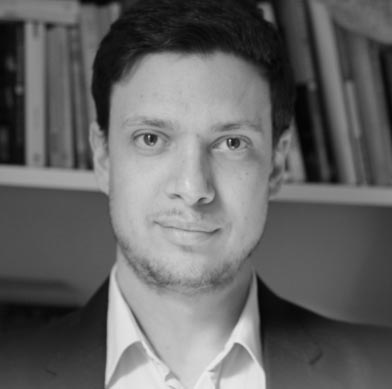
Adrian Lakrichi is a legal analyst at the Syrian Legal Development Programme (SLDP). He supports complaints and UN submissions on international law. He also works on state engagement, especially with Latin American countries.
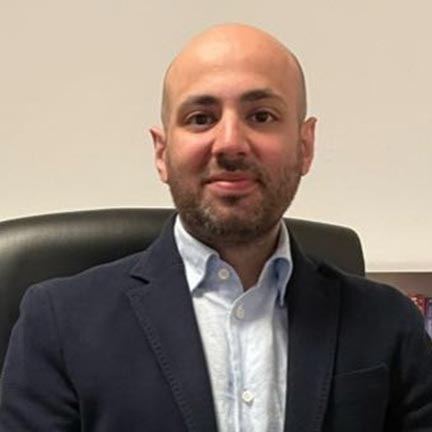
Mouhanad Sharabati is a Syrian lawyer specialising in international law and a senior legal officer at the SLDP. Graduated from Damascus University, Lund University, and the Raoul Wallenberg Institute for Human Rights and Humanitarian Law, he has practiced law in Syria and was a member of the Syrian Bar Association.
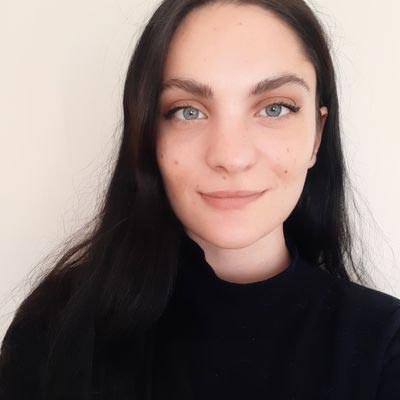
Veronica Bellintani is the head of the International Law Support Unit at the SLDP, where she provides legal support to victims, survivors, and families’ associations to achieve justice, truth, and remedy for human rights’ violations in Syria.


